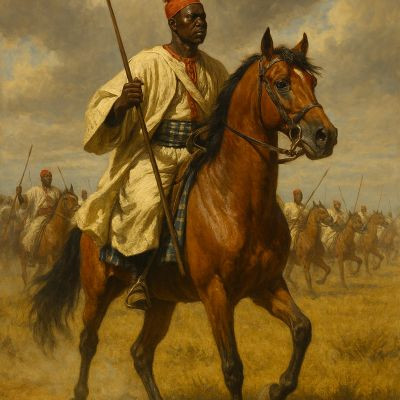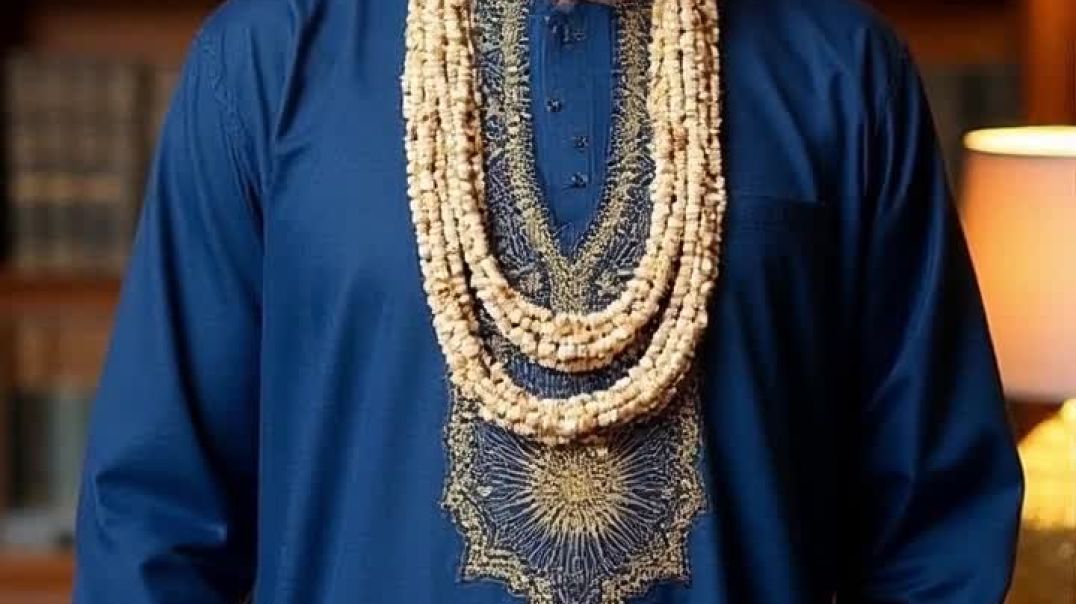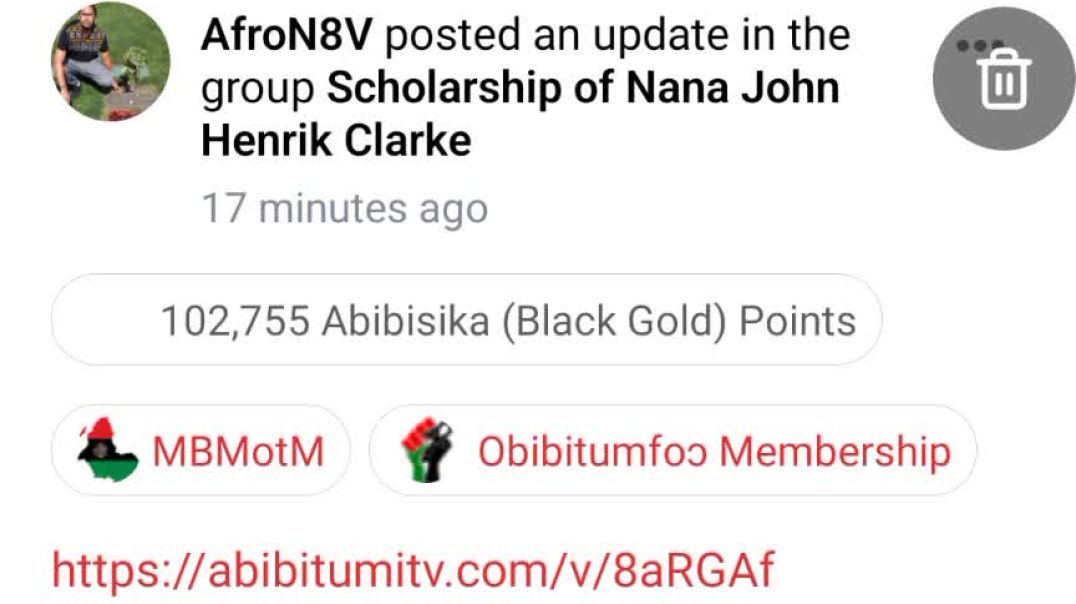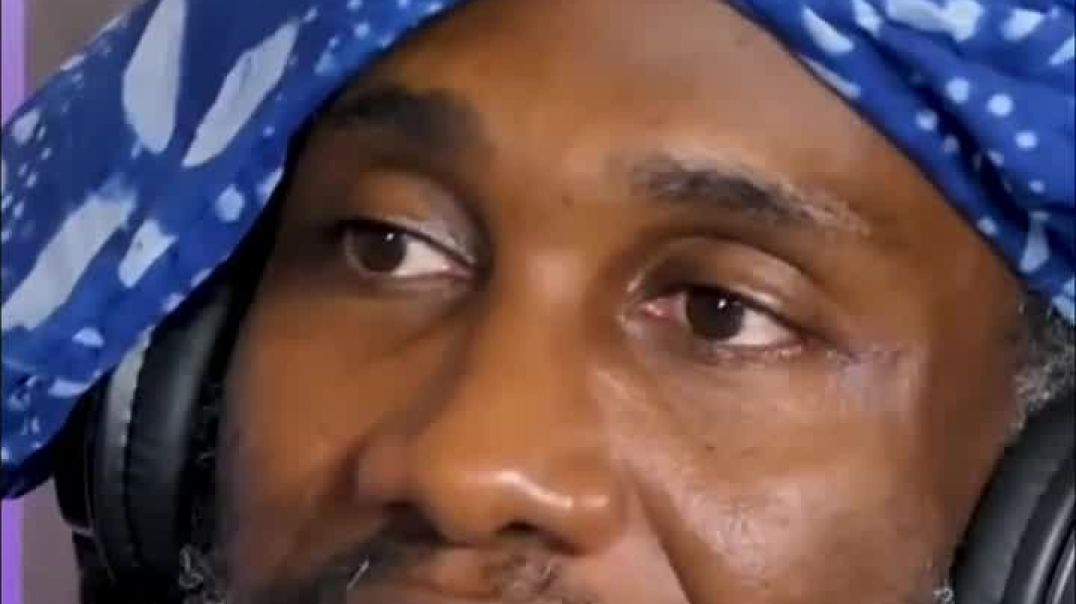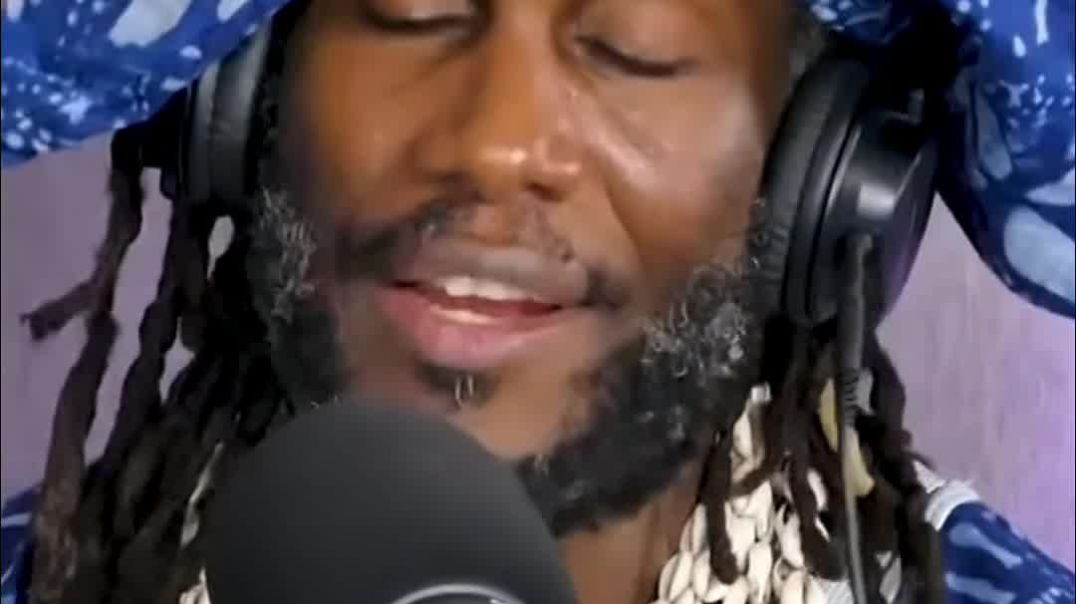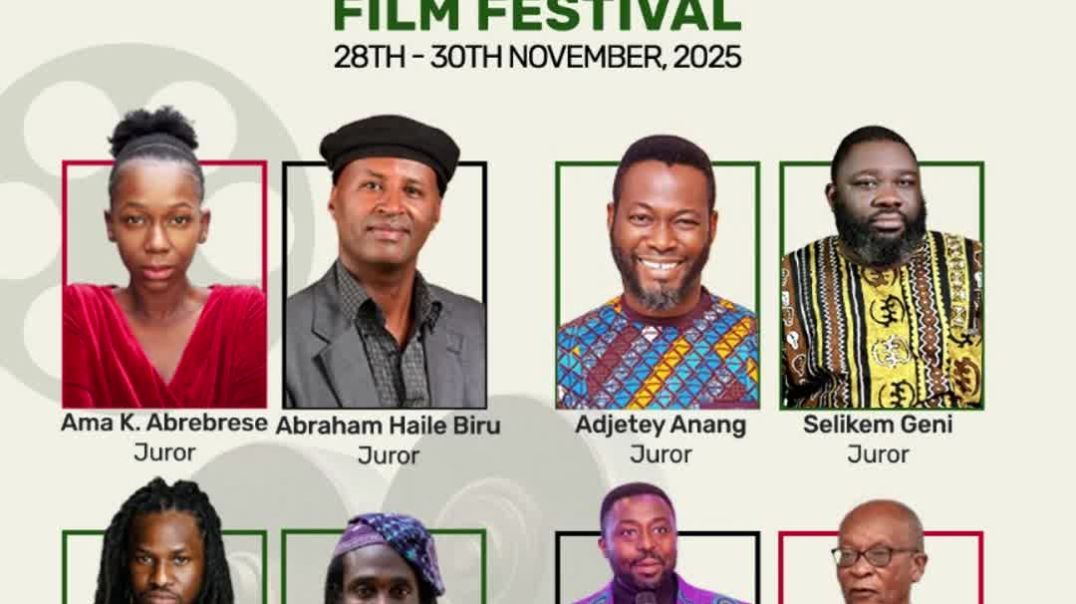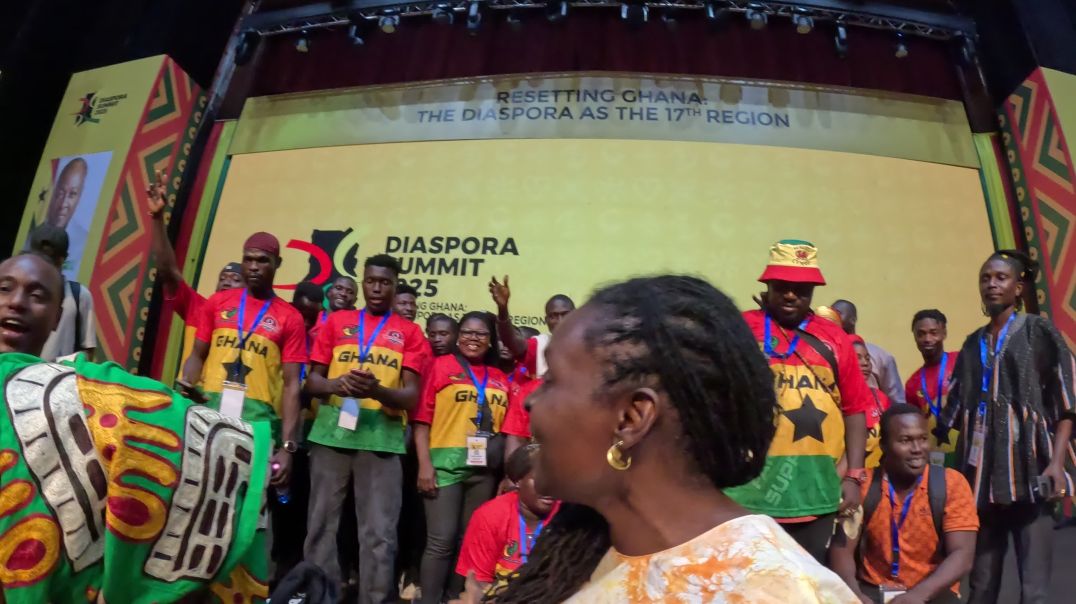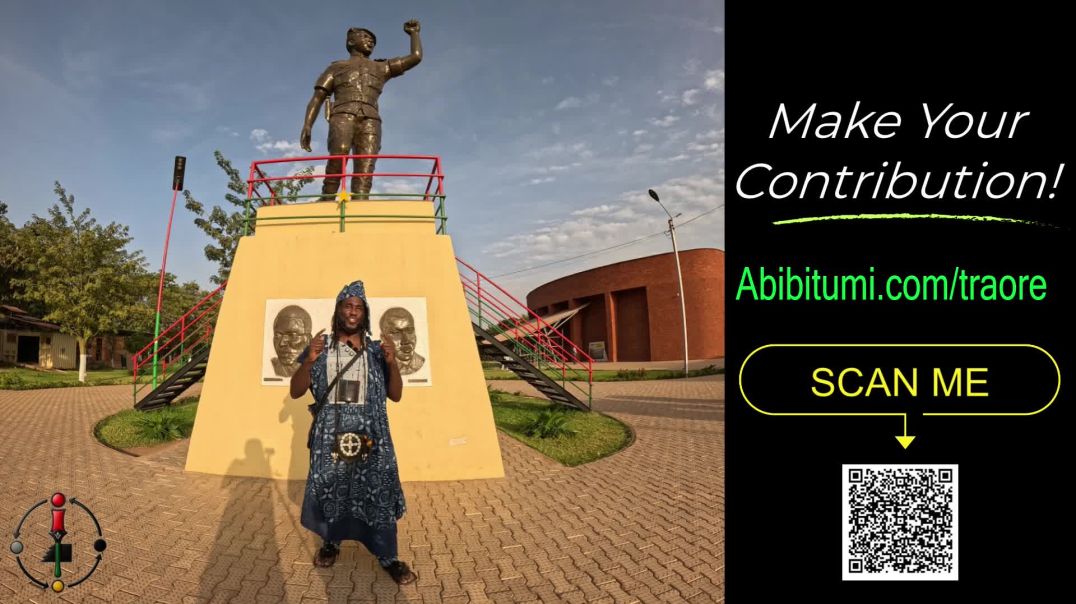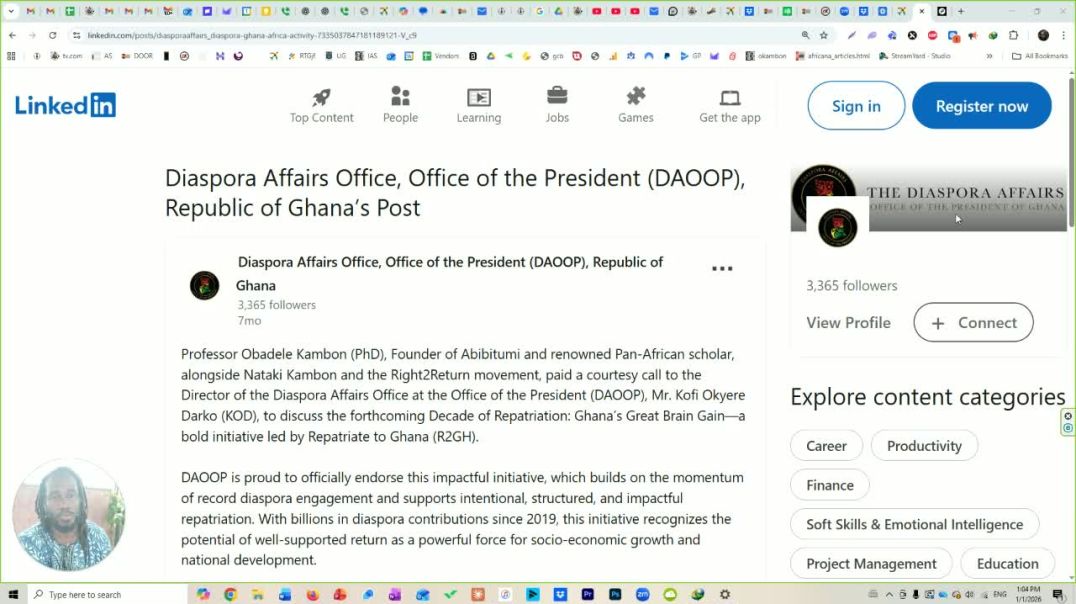
Babasola Adejola
|Subscribers
Liked videos
Unmasking Enslavement Myths
I’m excited to almost finish my bath and toilet sustainably and totally off the grid. The key is independence and sustainability. No ppp loans or no debt, just the necessary sacrifices and ventures to be in a position of power ✊🏾💪🏾.
From krakkka algorithm and blues to Blacker Algorhythm and Groove!
Moya is a dignified platform for African healers and scholars to unpack the natural sciences and history. In this episode, we sit down with THAU-THAU HARAMANUBA 🔆🔆🔆🔆🔆😊😊😊 This is a self funded project. Please do your bit? 😉🙏🏿 Ntsiki Mazwai Media Account number 630 392 398 92 Branch code 250 655 First National Bank or www.paypal.me/ntsikimazwai
For copyright matters, takedown, or complaint please contact: historicalafrika@gmail.com
In this episode of Truth Africa Series (brought to you by Historical Africa), we will be reacting to Dr. Henrik Clarke speech on religion in Africa.
The colonization of Africa was not just about political control; it also aimed to reshape African societies in the image of the colonizers.
One way this happened was through religious imposition. European powers, driven by a belief in their cultural and religious
superiority, sought to convert Africans to Christianity, often suppressing indigenous religions in the process. This cultural assimilation
served to consolidate control and legitimize colonial rule.
Religion has often been an instrument used to maintain power and control over populations. In the context of Africa, religion
was used as a tool to justify economic exploitation and the subjugation of Africans. Missionaries preached the superiority of
European Christianity, portraying African religions as primitive or demonic, and using this narrative to justify colonization and the
extraction of Africa's resources.
The conversion of Africans to foreign religions was also strategic for maintaining political and social control. By imposing their
religions, colonizers sought to weaken traditional societal structures, including indigenous spiritual practices, which often played a
significant role in governance and cultural identity. Conversion to foreign religions served to alienate Africans from their traditional
roots, making them more submissive to colonial authority.
Music:
yugen emotional
Source: wwww.choisc.com
Licensed under creative commons.
✅COPYRIGHT DISCLAIMER
Historical Africa doesn't fully own some of the materials compiled in its videos. It belongs to people or organizations who
ought to be respected. If used, it falls under the following provisions: Copyright disclaimer section 107 of the Copyright Act 1976.
"Fair use" is allowed for purposes such as criticism, comment, news reporting, teaching, scholarships, and research.
✅ If you are the owner of the materials used in this video, contact us, and we will follow your request immediately:
historicalafrika@gmail.com
#africa #religion #speech
For decades, Africa has given the world its brightest minds, strongest labor, and richest cultures—often without recognition.
“Decade Of Our Repatriation: How Africans Quietly Enrich Europe” exposes the untold story of African migration and contribution across Europe. From healthcare and academia to technology, sports, and culture, Africans have become silent pillars of European development—while the narrative often ignores their value.
This video explores:
How African professionals sustain key European industries
The economic, cultural, and intellectual impact of African migrants
Why Africa continues to lose talent—and who truly benefits
The growing call for repatriation, return, and African self-reliance
This is not just about migration—it’s about truth, history, dignity, and the future of Africa and its diaspora.
Watch, reflect, and join the conversation.
Share this video to change the narrative.
#africandiaspora #repatriation #africarising #migrationtruth #decolonizehistory #panafricanism #globalafrica
follow To get to know more about African Beautiful Culture
Facebook; https://www.facebook.com/share/18EkUbsn8C/
TikTok; https://www.tiktok.com/@www.s.k.mmedia7?_t=ZM-8u30OwCcC2A&_r=1
Instagram; https://www.instagram.com/simo....nnartey683?igsh=NWNk
To support my travel video:.Ecobank..1441002265786 / Simon Nartey
Momo account:.0544000037: Simon Nartey
Why do Africans proudly speak English, French, Arabic, or Portuguese, yet struggle to promote their native languages? In this thought-provoking video, we explore how colonialism shaped Africa’s linguistic priorities and why regional languages are often sidelined. Are we losing a vital part of our identity? Let’s discuss the importance of preserving and promoting African languages for future generations.
Scene from the opening of the Conference and FestivalAbibitumi Conference Tickets available here: https://www.abibitumi.comAbibifahodie Festival is FREE!Check https://www.abibitumi.com for the FREE bus shuttle schedule
Black power film festival in Ghana
Check the original post here: https://www.linkedin.com/posts..../diasporaaffairs_dia
Greetings Abibitumfoɔ,
I’m inviting you to join the new Decade of Our Repatriation (DOOR) group on Abibitumi. This will be our space to share updates, key resources, announcements, and coordinated steps for those actively moving toward repatriation and those supporting the work.
Join here! https://www.abibitumi.com/grou....ps/decade-of-our-rep
ABIBITUMI! ABIBIFAHODIE!
Ɔbenfo Ọbádélé Bakari Kambon
‼️WATCH THE FULL UNCENSORED INTERVIEW WITH DR. IFE WILLIAMS NOW‼️
https://ineverknewtv.com/premium/
👕 Get Your 'EDUCATE, INFORM, INSPIRE' T-SHirt NOW:
https://ineverknewtv.com/shop-2/
Dr. Ife Williams is an Africologist, an expert in the historical and present experiences of Africans and African Descendants throughout the Diaspora.
In this impactful reasoning, Dr. Ife Williams unpacks the hidden truths of slavery, from Northern and African involvement in the trade to the incredible resilience of the enslaved. She explores how ancestral strength continues to empower, while addressing key moments like the Pennsylvania Abolitionist Act and the roots of policing. Dr. Ife also shares a powerful story of loss, critiques reparations paid to enslavers, and reflects on the disconnect between elders and youth. Highlighting cultural ties between Jamaica and Ghana, she calls for an education system that empowers and introduces her platform, BlackSlaveRevolts.org, as a tool for understanding Black history and progress.
Please click link below to learn more about Dr. Ife Williams and her work:
https://drifewilliams.com
https://blackslaverevolts.org/....black-resistance-map
🎧 Catch 'I NEVER KNEW RADIO
for Roots, Rock, Reggae Music!
Hosted by Jr a.k.a 'The Bald Head' of 'I Never Knew TV'
📅 Sundays: 9 - 11 AM EST
📅 Wednesdays: 8 - 10 AM EST
📅 Thursdays: 10 AM - Noon EST
Listen live: https://wloy.org/listen/
#ineverknewtv
SUBSCRIBE TO OUR BACKUP 👇👇
https://youtube.com/@OFFICIAL-....SURVIVER-BACKUP?si=S
Germany’s President visits Ghana — but behind the smiles and diplomacy lies a serious West African security crisis. 🇬🇭⚔️🇩🇪
President JOHN Dramani Mahama has revealed why the fight against terrorism is at a breaking point. The Sahel nations — Burkina Faso, Mali, and Niger — have pulled away from the Accra Initiative. Now Ghana is pushing for a NEW security platform that will bring the AES back to the table.
Why did the Sahel states abandon the Accra Initiative? Who is benefiting from this divide? And what does this mean for the future of West Africa’s stability?
This video uncovers: ✅ The real reasons AES left
✅ The security threat rising in the Sahel
✅ Ghana’s plan to unite West Africa again
✅ A geopolitical battle BIGGER than anyone is saying
Africa’s security is shifting — and the world is watching. 🌍🔥
Don’t miss this breakdown!
#ghana #germany #accrainitiative #westafrica #sahel #aes #burkinafaso #mali #niger #nanaaddo #africanunity #panafricanism #geopolitics #breakingnews #securityinafrica #africanews #military #extremism #globalpolitics #trendingnews
Are Africa’s leaders working for their own people — or for foreign powers? That question is back at the center of West African politics after a striking move by Burkina Faso’s President, Ibrahim Traoré. At a recent summit in Niger, Traoré publicly ruled out the membership of two West African states in the fledgling Sahel Confederation and signaled which country might be next in line to join. The announcement caught many by surprise because it wasn’t just about borders or diplomacy — it was a deliberate political statement about influence, independence, and who gets to shape the region’s future.The Sahel Confederation currently brings together Burkina Faso, Mali and Niger — countries that share deep social, cultural and economic ties. Traoré’s stated vision is to build a confederation grounded in those commonalities: a bloc of states with similar development levels and cultural frameworks that can cooperate on security, economics and self-determination. In his view, cohesion depends on parity; admitting states with very different economic structures, or those too enmeshed with outside powers, would risk reproducing old hierarchies and opening the door to external economic domination.Put bluntly, Traoré argued that some prospective members are too tightly bound to foreign interests — and that their inclusion would import the very inequalities and elite capture the Confederation is meant to reject. He framed his stance as an anti-imperial, grassroots commitment: no more arrangements that let outside actors extract wealth while leaving ordinary citizens poor. That’s why, according to his remarks at the summit, certain countries were turned away — not because of geography, but because of economics, political alignments, and the danger of repeating patterns of economic exploitation.Many observers point to the broader logic behind this move: Traoré wants a union that protects member states from neo-colonial pressures, especially those that perpetuate French economic influence in the region. By prioritizing cultural and economic affinity and by insisting on independence from external control, he hopes to prevent the Confederation from becoming another channel for foreign elites to consolidate power.That said, the explanation raises questions that still need answering. Which two countries did Traoré exclude, precisely why were they rejected, and what criteria will be used going forward to admit new members? The answers matter because they will determine whether the Sahel Confederation becomes a model of regional solidarity and self-reliance — or simply reshapes old rivalries under a new banner.In short: Traoré’s announcement is more than a diplomatic decision. It’s a political test — a claim that West African unity must be built on shared development goals and freedom from outside economic manipulation. Whether that vision holds, and how other regional capitals respond, will shape the Sahel’s political landscape for years to come.Add your voice to the total liberation of Africa by leaving a comment in the comments section below. Do not forget to like and subscribe for more informative videos like this one. Let’s proceed.From the 1840s until its independence in 1960, Côte d’Ivoire — then known as Ivory Coast — remained under French colonial rule. But independence didn’t mean separation. Decades later, France’s deep political and economic ties still shape the country’s direction and, in many ways, explain its absence from the newly forming Sahel Confederation.France’s involvement in the region dates back centuries. As early as 1637, French missionaries were operating near the Gold Coast. By 1687, they had established a mission, and by 1701, they built a fort to strengthen their foothold. Then, during the Scramble for Africa, France formalized its control — declaring Ivory Coast a protectorate in 1843 and turning it into a full colony by 1893. What followed was a long era of French expansion and dominance, marked by aggressive efforts to reshape Ivorian society.#IbrahimTraoré #sahelconfederation #aes #westafricapolitics #africaunity #burkinafasonews #geopoliticsafrica
from original source: Boukman's Prayer:The God who created the earth, who created the sun that gives us light.The God who holds up the ocean, who makes the thunder roar. Our God who has ears to hear. You who are hidden in the clouds, who watch us fromwhere you are. You see all that the white has made us suffer. The white man's god asks him to commit crimes. But the God within us wants to do good. Our God, who is so good, so just, He orders us to avenge our wrongs. It's He who will direct our arms and bring us the victory. It's He who will assist us. We all should throw away the image of the white man's god who is so pitiless.Listen to the voice for liberty that sings in all our hearts. -- Boukman's Prayer at the Bwa Kayiman Vodun ceremony, the August 14, 1791 call to action that launched the Haitian Revolution, which started on August 22, 1791. --- get rid of the European religion and idea of God....we are god
Provided to YouTube by DistroKid
Her Real Name is Ayiti, Not Haiti (Black & Red Flag) (Empire of Ayiti Covert 19) · Ayiti Bluez
Her Real Name is Ayiti, Not Haiti (Black & Red Flag) (Empire of Ayiti Covert 19)
℗ 2698899 Records DK
Released on: 2021-06-25
Auto-generated by YouTube.
